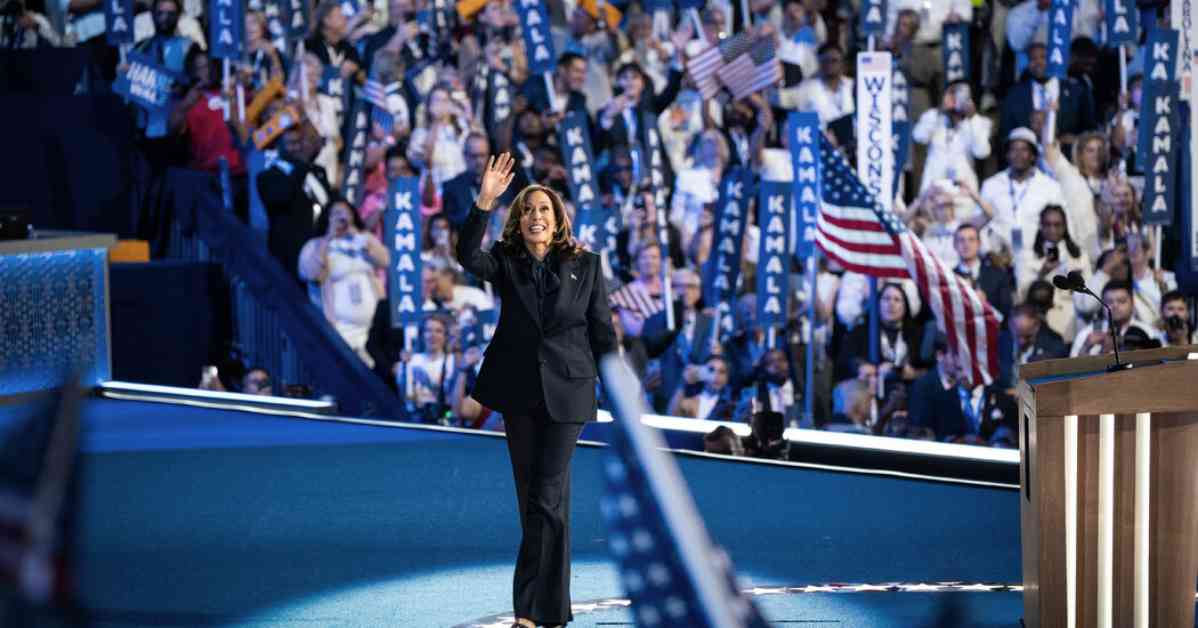Opinions on Kamala Harris’s Speech from Non-Democratic Voters: A Review
As the Democratic National Convention came to a close, all eyes were on Kamala Harris as she delivered her speech to make the final case for why Democrats should retain the White House for another four years. While her words resonated with the party faithful in attendance, the real test lay in how undecided and non-Democratic voters outside the convention bubble would receive her message.
Mixed Reactions from Non-Democratic Voters
For many voters, particularly those leaning towards the Republican Party, the prospect of watching Kamala Harris’s speech was not a priority. Some admitted to not even bothering to tune in, citing a lack of interest or trust in the Democratic agenda. However, for those who did watch, the reactions were varied.
Bob and Sharon Reed, a couple from central Pennsylvania who had previously voted for President Trump, found themselves in a state of conflict after listening to Harris’s speech. Despite their reservations about the Biden administration, they were surprised to find themselves swayed by Harris’s words. Sharon, a retired schoolteacher, admitted, “I really wasn’t happy with the Biden administration, but listening to her tonight, maybe it’s not as hard to vote for her.”
This sentiment of uncertainty and wavering loyalty was echoed by other non-Democratic voters who found themselves reevaluating their stance after Harris’s speech. While not all were immediately convinced, there was a sense of openness to considering alternative options beyond their traditional party lines.
Analyzing Harris’s Key Points
In her speech, Kamala Harris touched on a range of topics, from standing up to global tyranny to sharing personal anecdotes about her upbringing and the influence of her single mother. She did not shy away from criticizing the former President Trump, labeling him as an “unserious man” and highlighting the weight of responsibility that comes with being an American.
For many non-Democratic viewers, these points were met with a degree of skepticism. Some expressed a desire for more concrete policy details and specific plans from Harris, rather than lofty rhetoric and attacks on the opposition. This sentiment reflects a broader trend among undecided voters who are seeking substance and clarity in political speeches, rather than mere emotional appeals.
The Impact of Harris’s Speech
While Kamala Harris’s speech may not have immediately converted non-Democratic voters, it did succeed in sparking a conversation and prompting reflection among those on the fence. The Reeds, like many others, found themselves grappling with conflicting emotions and uncertainties about their voting choices. This internal struggle speaks to the complexity of political decision-making and the importance of engaging with diverse perspectives.
Looking Ahead to the Election
As the November election draws closer, the reactions to Kamala Harris’s speech serve as a microcosm of the broader political landscape. Non-Democratic voters are grappling with conflicting loyalties, uncertainties about the candidates, and a desire for more substantive engagement from political leaders. The challenge for the Democratic Party lies in addressing these concerns and effectively communicating their vision to a diverse and divided electorate.
Conclusion
In conclusion, Kamala Harris’s speech at the Democratic National Convention elicited a range of reactions from non-Democratic voters. While some remained skeptical or indifferent, others found themselves reevaluating their positions and considering alternative choices. The impact of Harris’s words goes beyond immediate conversions, highlighting the complexities of political decision-making and the need for substantive engagement in the upcoming election. As the campaign progresses, the challenge for candidates lies in reaching across party lines and addressing the concerns of a diverse electorate.














